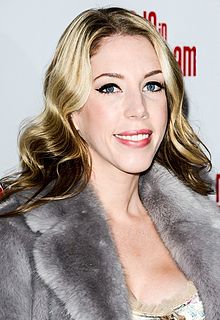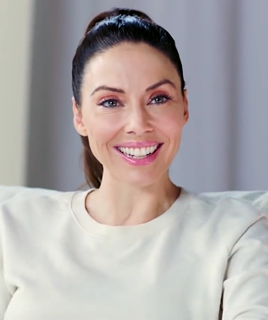A Quote by Matt Haig
We often joke about men moaning about being ill, whether it's man flu or anything else. We want them to be silent and strong about these things. And that's quite dangerous when it comes to depression, because talking about it helps. People bottle it up until it's too late.
Related Quotes
The relationship I have with my mother now, and photographing her in front of the grave, it opens up discussions, and dealings with the conversations with my mother about, when I was little, how we lived and about suicide and talking about it, so it's something positive, it brought us more together, because people might never discuss that. Some families never go near certain subjects because it's too hurtful or too close or too dangerous. But within doing these photographs, I also wanted to open up a conversation with her about certain things about life.
One of the great things about being commander in chief is getting to know our men and women in uniform in a very intimate way, whether it's visiting Walter Reed and seeing our wounded soldiers, or being on a base and talking to families, or interacting with them on missions. They're the best of the best: always thinking about the mission, not thinking about credit, not thinking about who's up front.
We typically don't talk about something until we are about to ship. Not just for AI, but for anything: the comparison is generally what we are shipping compared to what someone else is talking about that is going to happen sometime in the future. A lot of people sell futures, I guess, is the way to think about it.
I don't remember being thought of as good-looking until I became a feminist. It's more of a comment on people's expectations than of what a feminist would look like. They assumed that if you could get a man, you wouldn't want anything else - what else could you possibly want? So that feminists who were talking about such things as equal pay must be doing so because they were unable to get a husband to support them, and therefore they must be ugl - this was the sort of train of thought. So because I looked different from the stereotype, then people would comment.
Talking about freedom, about ethical issues, about responsibilities as well as convenience, is asking people to think about things they might prefer to ignore, such as whether their conduct is ethical. This can trigger discomfort, and some people may simply close their minds to it. It does not follow that we ought to stop talking about these things.
Nothing is more debilitating than to care about something you can't do anything about. And you can't do anything about your adult children. You can want better for them, and maybe even begin to provide something for them, but in the long run, you cannot do anything about someone else's vibration other than hold them in the best light you can, mentally, and then project that to them. And sometimes, distance makes that much more possible than being up close to them.
She [Hillary Clinton] knows the people well. I think there is - you know, also talking about breaking down barriers and talking about that, whether we`re talking about that in economic terms. I mean, she`s the only person who has been out there talking about white privilege and talking about sort of the intersectionality of some of these issues.






































